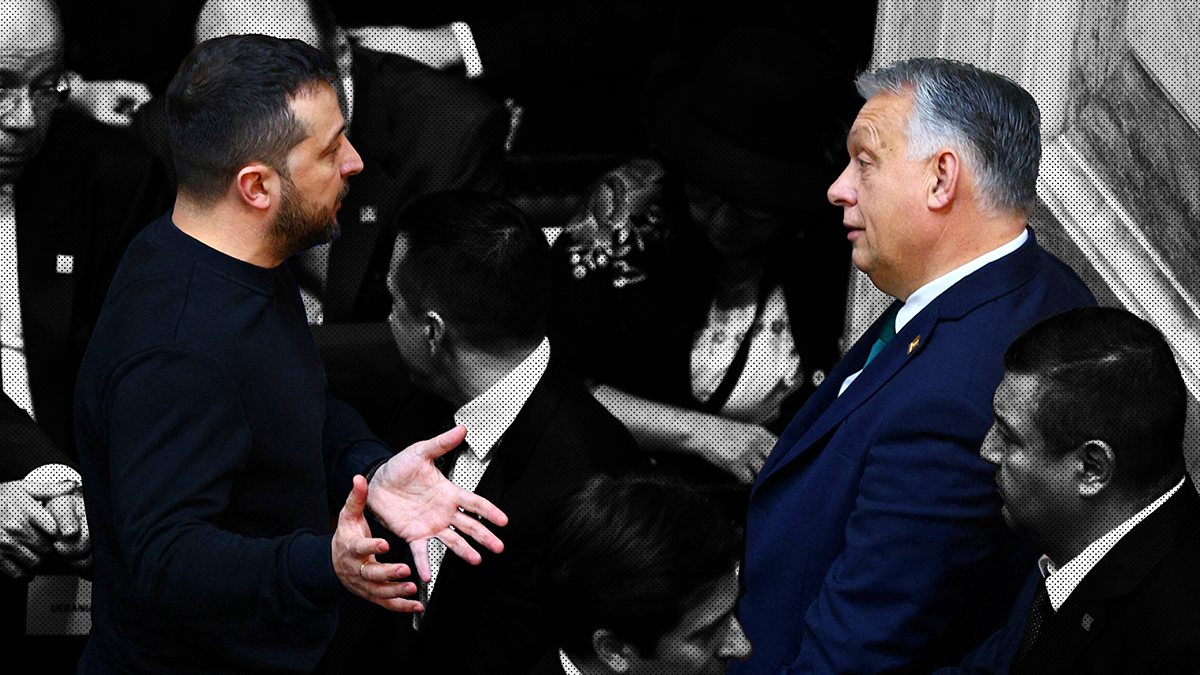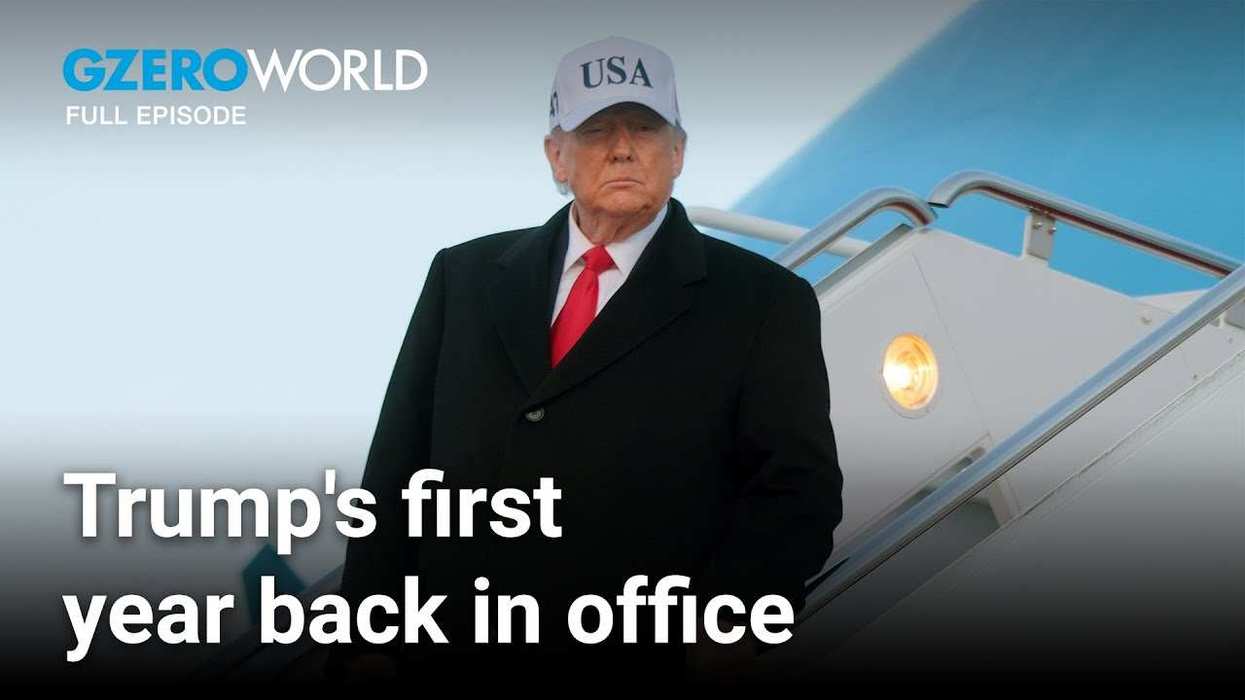While visiting Buenos Aires on Sunday for the inauguration of Argentina’s new president Javier Milei, Ukrainian President Volodymyr Zelensky was able to buttonhole Hungarian Prime Minister Viktor Orban.
Cameras caught an unimpressed-looking Zelensky sharing his thoughts with a defensive-looking Orban. We don’t know what he said – Zelensky said later that it was a “frank” exchange – but we can guess that the Ukrainian was calling Orban out for acting on behalf of Russian President Vladimir Putin, who is seeking to gain through politics what he has so far failed to gain on the battlefield: Ukraine’s submission.
Twenty months after Russian tanks crossed the border in a failed thunder run for Kyiv, the war is at a stalemate. Ukraine’s improbably successful resistance stopped an outright Russian victory, but a counteroffensive this year failed to make the hoped-for gains, and now Putin’s friends in Western capitals are seeking to capitalize on fatigue with the war to stop the Western arms that allow Ukraine to fight.
Orban, Putin’s best European ally, is threatening to block Ukraine’s accession to the European Union and is arguing against a crucial European aid package for Ukraine at a summit this week, although France’s Emmanuel Macron will try to get him onside. Meanwhile, Orban’s representatives in Washington are meeting with far-right Republicans who want to prevent the United States from approving $60 billion in military aid for Zelensky’s fighters.
Quid pro quo
Republicans are split on the question of aid to Ukraine but united in a desire to stop migrants from crossing into the United States, so President Joe Biden is trying to appease them by putting more resources into securing the southern border.
The White House is wrangling with Senate Republicans to seek a compromise, but the holidays are coming, and they need to make a deal before they all leave for the year on Friday.
“Biden is under tremendous pressure to approve an additional aid package,” says Clayton Allen, Eurasia Group director for the United States. Such a deal would likely help him with voters later, said Allen, since border security “has proven a perennial issue for his reelection chances.”
To stop the increasing number of migrants, Biden is reportedly offering to expel migrants without processing their asylum claims using Title 42, a pandemic-era measure that Donald Trump used to turn away migrants on public health grounds.
If GOP leaders in the Senate can make a deal with Biden before the holiday break, it may allow Speaker Mike Johnson to sell it to enough of his members to get it through the House. On Tuesday, he said that border security was the “hill to die on.” Johnston will likely not be able to convince Freedom Caucus members — the people who are meeting with Orban’s representatives — but he may be able to put together enough votes to get it passed, as he did to avert a government shutdown last month.
Money on the line
Biden’s job may be easier than it looks because congressmen will be motivated by a desire for economic activity in their districts, says Christopher Sands, director of the Wilson Center’s Canada Institute. “All these wars do have a tendency to benefit us in that sense because it's such a big military production that'll help a lot of congressional districts.”
When the horse trading in Washington is over, it seems likely that Ukraine will get money to keep fighting Putin, but the politics is not getting easier as the war grinds on.
“Whether Orban is the mastermind or Putin, we've seen over the last couple of years that the authoritarian countries … have been going for our great weaknesses in democracies, which is free debate,” says Sands. Spreading fake news or propaganda is “the best way to weaken the support for Ukraine.”
Canadian Conservatives change sides
Until recently, all Canadian parties shared a consensus on support for Ukraine. More than a million Canadians trace their roots to that country, so there are good electoral reasons to support Zelensky, but the Conservatives under Pierre Poilievre have quietly started voting against aid to Ukraine. In the run-up to the next general election, Poilievre wants to avoid losing any conservative support to the far-right People’s Party of Canada, which has always opposed helping Ukraine, like populists around the world.
“I think what he understands is that he has to ameliorate the right flank,” says Canadian pollster Nick Nanos. “He's doing the political calculus that if he can pick up three points out of the PPC, that could put him into majority territory.”
The Conservative votes in Canada can’t stop aid to Ukraine, but it is nonetheless a sign that Zelensky’s diplomatic challenges are getting tougher. If the Russians can win in Western capitals, and Ukraine is left to its fate on the battlefield without support from NATO countries, Putin will be able to conquer its neighbor, and the West will be weakened.
“A collapsing USA now obviously has very significant near-term military implications for Ukraine,” says Allen. “It cuts off supplies of artillery and air defense, which are essential to Ukraine's offensive and defensive capabilities.”
But it also raises questions about the durability of US security commitments and guarantees with American allies. “A failure to approve additional Ukraine aid now,” says Allen, “will diminish US influence and leverage in negotiations and interactions moving forward.”
Zelenksy has used skillful diplomacy and media savvy to build global support for his country’s struggle against Russian imperialism, but time looks to be on Putin’s side.


















